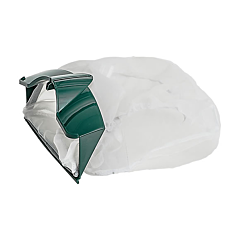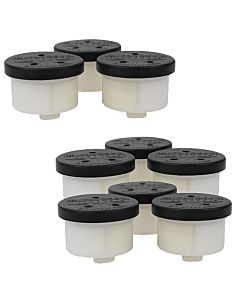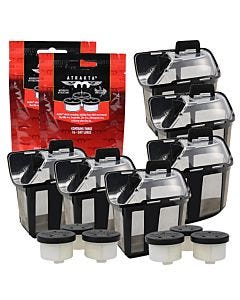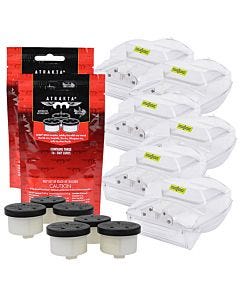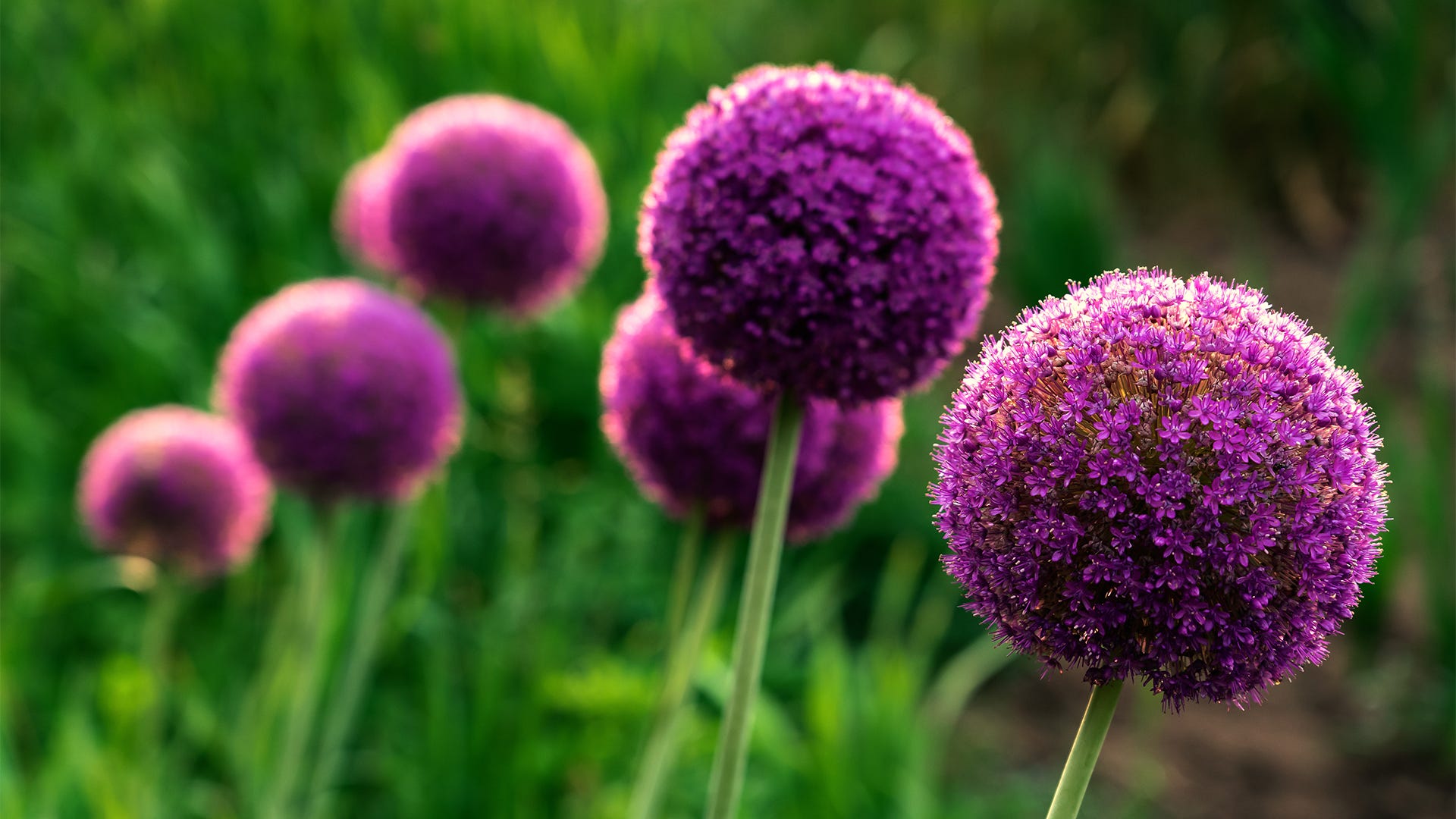
The annoying buzzing of mosquitoes and the itchy bites that may turn into an irritating bump or worse — must be mosquito season. Mosquitoes can cause allergic reactions in some people and they also carry diseases, such as West Nile Virus, which can lead to West Nile Fever, and Neuroinvasive disease. The risk of disease leaves many wondering how to repel mosquitoes in and around their home safely. For most people, using chemicals to control mosquitoes is out of the question. Who wants to take the risk with products that may be just as harmful as the mosquitoes themselves? Not many people do. This is where the search for effective and natural mosquito repellents comes into play. You can take a comprehensive approach to getting rid of these pests by using more than one natural mosquito deterrent. What are these natural mosquito prevention methods? Let’s take a look at natural mosquito repellent for the yard. Do you have doubts about using plants that repel mosquitoes? If you are like a lot of people, you may be unsure at first and wonder, “Do mosquito plants work?” The answer is yes. You just have to know what types of plants repel mosquitoes and where they grow best. So, what kinds of plants repel mosquitoes? All types of plants can work as an effective natural mosquito deterrent, including herbs, flowers, grasses and even houseplants. Let’s get started learning more about using plants that serve several purposes, such as being attractive, spicing up your food, and serving as a natural mosquito repellent.
Want To Do More Than Repel? Try Trapping As Well
Plants That Repel Insects: Ornamental Flowers
You can add color and beauty around your patio, porch, gazebo or any other outdoor relaxation spot by planting these common ornamental plants in your flower beds. These plants can help repel mosquitoes around your favorite outdoor living spaces.
 Citronella Geranium
Citronella Geranium
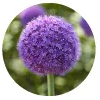 Alliums
Alliums
 Mums
Mums
 Marigolds
Marigolds
 Floss Flowers
Floss Flowers
Citronella Geranium
Citronella is probably one of the most common plants thought of when you think of mosquito-repellant plants. Many people wonder: Do citronella plants work? They are called the mosquito plant, and they give off a scent mosquitoes don’t like. And they are effective in repelling mosquitoes in small areas. Citronella geraniums do contain citronella, but it is not used to extract oil for commercial purposes. These plants do produce lovely lavender-colored flowers that can dress up your flower beds or add color to your patio or deck, while keeping mosquitoes away. Whether you grow citronella plants in containers or in your flower beds, they need an area with well-drained soil and full sun. You can grow them as an annual or dig them up and bring them indoors in winter. They are hardy in United States Department of Agriculture plant hardiness zones 9 through 11.
Alliums
Alliums are hardy bulbs that produce dramatic balls of purple, blue, yellow or pink flowers atop stiff, upright stems. Many species bloom in spring — just in time to help repel mosquitoes. You can plant alliums from seed in spring or fall, or plant bulbs in fall. They need a spot with full sun to light shade and well-drained soil. You can plant them in a flowerbed or mingle them in with your plants in the vegetable garden to ward off pesky insects such as mosquitoes, as well as:
- Aphids
- Slugs
- Cabbage worms
These resilient plants grow well in USDA plant hardiness zones 3 through 9. Some species reseed readily, while others you can divide in late summer. It’s best to start alliums from bulb instead of seed. Bulbs grown from seed can take up to 4 years to flower.
Mums
Chrysanthemums, or mums for short, are long-blooming, easy-to-care-for flowers that are a natural mosquito remedy. Mums are great flowers to plant along a border or in a cottage garden and look great in container on or near your porch or patio in full sun. Annual mums grow up to 3 feet tall and have daisy-like blooms in shades of yellow, pink, red and white, some with two-toned petals. They bloom from spring through frost. Perennial mums are shrubby plants with daisy-like flowers in shades of yellow, orange, lavender and white. They grow up to 5 feet tall and bloom from summer through late fall in USDA plant hardiness zones 5 through 9. Along with mosquitoes, mums repel other outdoor insect pests, such as:
- Ants
- Silver fish
- Ticks
- Fleas
- Spider mites
You can use them in flower beds or near your vegetable garden to repel insects that nibble at your fresh veggies.
Marigolds
Not everyone likes the scent of marigolds, and mosquitoes don’t either. Marigolds grow almost anywhere as long as they have full sun and moist soil. These hard-working annuals have an upright growing habit with an abundance of blooms in yellow, orange or rusty-red. Plant marigolds as edging, borders, in containers or intermingled with your other garden plants. They grow up to 3 feet tall and bloom from summer through frost, and help repel mosquitoes as well as:
- Aphids
- Root-knot nematodes
- Rabbits
They are hardy perennials in USDA plant hardiness zones 5 through 10.
Floss Flowers
Floss flowers, also known as ageratum, are attractive annuals with flowers that range in color from pink and white to the palest blue and deepest violet. These natural mosquito-repellent plants form tight mounds that make them ideal for edging and borders. They grow in all USDA hardiness zones as long they have full sun. They adapt well to all types of soil. They bloom from spring through frost, so use them in your flower gardens near your patio, porch, deck or other sitting areas outdoors.
Mosquito Control Plants: Carnivorous
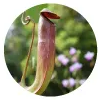 Pitcher Plant
Pitcher Plant
 Droseras
Droseras
 Venus Flytrap
Venus Flytrap
Pitcher Plant
The pitcher plant, also known as trumpet leaf, doesn’t repel mosquitoes; it attracts and eats them and uses them as nutrients to grow. It’s often grown as a curiosity plant because of its insectivorous nature. Pitcher plants are often grown in baskets you hang near your porch or patio and in plant stands you can set out on your deck or patio. The flowers are green with purpled- veined hooded pitchers, growing up to 4 feet long. They grow well in sun to light shade. They like wet soil, and do well in damp spots and bog gardens. Choose an area where they will get plenty of moisture, or just grow them in baskets and hang them near you outdoors. Other carnivorous plants you can grow to repel mosquitoes include:
- Drosera, which attracts insects with its scent and uses an acid to dissolve them once they land on its flowers.
- Venus flytraps, which eat many types of insects, including mosquitoes. They only eat a few insects week, and they are tropical plants.
You can grow carnivorous plants indoors as houseplants to catch a mosquito that makes its way indoors.
Herbs That Repel Mosquitoes
Many herbs have dual purposes. You can use them to spice up your meals, treat ailments and even as a way to keep mosquitoes away. Let’s look at the best natural mosquito repellents among these plants.
 Rosemary
Rosemary
 Mint
Mint
 Basil
Basil
 Lavender
Lavender
Rosemary
Rosemary not only adds flavor to your favorite roasted meats, it’s also a natural mosquito repellent plant. You can grow rosemary as a perennial, evergreen shrub for borders, hedgerows, and even creeping varieties in hanging baskets. Rosemary’s small, pale-blue flowers and spiky leaves complement your garden and make it an interesting plant. You can grow rosemary as a perennial in USDA plant hardiness zones 8 through 10 and as an annual in other areas. It needs full sun and well-drained soil.
Mint
Mint’s sweet smell is pleasing to humans but not to mosquitoes. These spreading perennials are grown for culinary use and as ornamental plants for their variegated leaf forms. They produce tiny pink, white or purple spiky flowers and grow up to 36 inches high. Mint is hardiest in USDA plant zones 8 through 10 and can become invasive, so be careful where you plant them. They need full sun to part shade and bloom in summer.
Basil
Another spice with a dual purpose, basil not only tastes great in your favorite dishes but it also gives off a strong scent that repels mosquitoes. It’s a bushy annual you can grow in a flowerbed near a patio, porch or other outdoor sitting areas. Basil’s lovely green leaves balance well with colored flowers. You can also grow basil in containers and place them near you when you’re outdoors. Basil grows in moist, well-drained soil and full sun, and because it’s annual, it grows in all regions.
Lavender
Lavender gives off a scent that is calming to humans but repels mosquitoes and other pests. It is a hardy perennial often grown as an annual. Lavender looks great when grown as a border and in containers. The plant’s tiny tubular flowers in shades of blue or purple are a perfect addition to your flower beds or as container plan to add color to and a nice fragrance to your patio or deck. Lavender is hardy in USDA plant hardiness zones 5 through 10, but you can grow it in other regions as an annual. It needs full sun and ordinary soil, and blooms in late spring through summer. Other mosquito-repelling herbs you can add to your garden include:
- Lemon balm
- Lemon thyme
- Garlic
- Clove
- Lemon grass
Plants alone can’t protect your entire yard from these pests, but they can help keep mosquitoes away in small areas where the plants are located. To protect your entire yard, you need to use a combination approach that includes plants and other safe mosquito repellants. Let’s look at other options for how to repel mosquitoes less naturally.
Mosquito Misting Stations
Mosquito misting stations work by using a time-released sprayer to release a fine mist of an insecticide to kill mosquitoes. These systems include spray nozzles you can mount on fencing or poles around the perimeter of your home.

While misting systems work to control mosquitoes, they have some disadvantages:
- The insecticide used also kills beneficial insects, such as honeybees, butterflies, and lady bugs.
- People and pets can be exposed to the insecticides.
- One of the common insecticides used, permethrin, is toxic to fish.
- Using these systems can lead to insecticide-resistant mosquitoes.
The Environmental Protection Agency (EPA) recommends Integrated Pest Management (IPM), which includes using a variety of pest management solutions in and around the home. For mosquito control, this would include:
- Getting rid of standing water to prevent breeding and kill larvae
- Using plants in your garden or on patios that repel mosquitoes
- Using mosquito-repellant sprays or lotions that contain DEET to prevent mosquito bites
If you want a safe, all-natural approach to mosquito control, IPM is the best solution. This way you can use a variety of safe mosquito control methods to repel or kill mosquito without harming your family, pets, beneficial insects, other wildlife or the environment. There are a variety of safe options for controlling mosquitoes. One of those is the mosquito trap.
Mosquito Traps
Mosquito Magnet® Traps are safe alternatives to misting systems. They do not emit potentially harmful insecticides. They protect a large outdoor area of up to an acre.
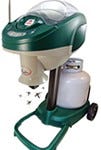
Mosquito traps are a long-term solution and are scientifically proven to be safe and effective for controlling mosquitoes. Mosquito Magnet® offers a choice of different models:
Let’s take a look at how they work.
- Traps convert propane to CO2 that is mixed with a precise level of heat, moisture and a secondary attractant.
- When mosquitoes are drawn to the trap, a vacuum sucks them in a net.
- Once in the net, the mosquitoes are trapped. They dehydrate and die within 24 hours.
- Every 21 days you change the propane tank and net
Mosquito traps begin to work immediately, but it can take up to 4 weeks to break the mosquito breeding cycle. Plan to set the trap up and get it working in spring. Mosquitoes become active once the outdoor temperature warms to 50°F, so you want your trap up and running before temperatures warm to protect your entire yard all season long.
The Best Solution to Mosquito Headaches
Mosquito traps are an investment for homeowners who want to protect their family against the potentially dangerous diseases spread by pesky mosquitoes. You don’t have to give up your outdoor activities and entertaining when you have a mosquito control system such as traps that can greatly reduce pest populations around your home. Check out the mosquito traps available from Mosquito Magnet®. You can find the trap that best fits your budget and your mosquito control needs. The traps come with a come with a one-year warranty. Don’t let mosquitoes keep you indoors this summer. Start using IPM methods that offer the safest, most effective mosquito control for your entire yard.

